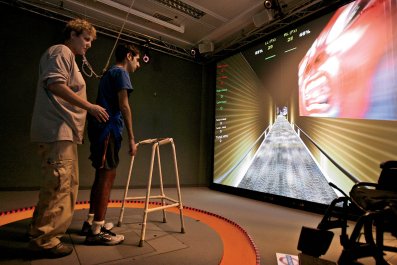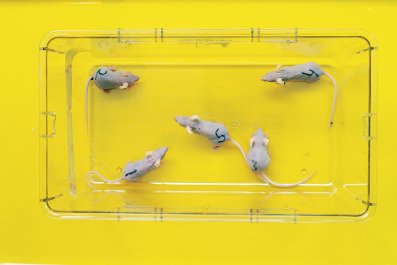The octopus has captured human imagination for centuries. "To believe in the octopus, one must have seen it," wrote Victor Hugo in 1866. "Compared with it, the hydras of old are laughable." Today, the dance-like movements of the octopus serve as the muse for engineers of an innovative new project called STIFF-FLOP. The project's goal is to create a robotic surgical arm that will navigate the human body with the same grace that octopods use to navigate the ocean.
A team of researchers at Hebrew University of Jerusalem has recently solved an octopus enigma no one had previously tackled: How does the octopus keep its eight arms from sticking together or becoming entangled? It turns out that chemical recognition is responsible for the tentacles' selective sticking abilities. When an octopus' suckers come in contact with its own skin, a chemical message is sent to momentarily stop them from working. "We were kind of amazed that this…was the answer," explains Guy Levy, a researcher with the study. "We had to repeat it many times to convince ourselves that it was true."
The new findings were received with enthusiasm by coordinators from the European Commission's STIFF-FLOP project (STIFFness controllable Flexible and Learn-able manipulator for surgical OPerations). According to Kaspar Althoefer, a STIFF-FLOP project coordinator, the findings at Hebrew U. could help lead to a "biologically inspired solution to keep the tentacle-like robots apart while the tentacle tips are coordinated in their actions to perform an operation."
Levy has another idea for how the study could be used in bio-inspired robots: navigating the complex maze of human intestines. "We don't want [a medical device] to grip the wall of the intestines. In this case, it may use chemical recognition to avoid sticking to the wall," Levy suggests.
Dr. Arif Ahmad, a bariatric surgeon at the J.T. Mather Hospital in New York, believes that the STIFF-FLOP technology "has the potential to be a game-changer." He says it offers real advantages over the current tools used in laparoscopic surgery but still "has a long way to go" before it could be used in a surgeon's operating room.































